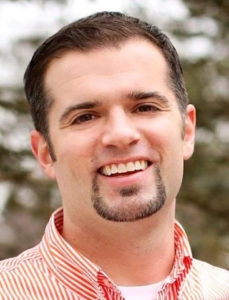 I was sitting in the kitchen talking to my wife, mother and son about the murder of 11 worshipers at the Tree of Life synagogue in Pittsburgh, Pennsylvania. I showed them the video of an interview I had done with a local television station. After touching on the general topic of congregational safety, the interview went into more depth about the shooting
I was sitting in the kitchen talking to my wife, mother and son about the murder of 11 worshipers at the Tree of Life synagogue in Pittsburgh, Pennsylvania. I showed them the video of an interview I had done with a local television station. After touching on the general topic of congregational safety, the interview went into more depth about the shooting
As the video ended, our 11-year-old son was silent. His eyes welled up with tears. After several moments he blurted out, “I’m so scared! I don’t want this to happen again. To me. To anyone!”
My heart sank. My eyes started to water. My stomach was in knots. I tried to clear my throat.
Then it hit me: Of course my son is scared. He is traumatized. He senses and sees the hate. And he knows this violence should have not happened.
Our son has not seen the shocking and heart-wrenching images from the Tree of Life synagogue. But I was struck by how dramatically he was impacted by the horrific hate crime against Jewish people in a city hundreds of miles away from our home in Syracuse, New York. What does he know about Judaism, anti-Semitism, or the struggle of the Jewish people throughout thousands of years of history?
Our son is a pastor’s kid who goes to church every Sunday and has heard about Jesus all of his young life. He loves Legos, plays Minecraft and is preoccupied with the latest gadget on display within his circle of friends. He has some Jewish friends but has never been to a synagogue or a bar mitzvah or bat mitzvah. He knows the stories of the Old Testament but does not know those stories apart from Christianity.
“If we live the scripture faithfully, one of the ways we love one another is to name evil – all evil – and to resist evil.”
Following our family’s conversation around the table, I decided to go to Facebook and reach out to some of my Jewish friends. I wanted to see how they were and how they were responding to the shooting. Most of them expressed shock, grief and overwhelming sadness. Many added that they will not allow hate to shake their identity as Jews or govern the ways they practice their faith. I was humbled by their resolve in the face of such an evil act.
I understand something of the fear among America’s Jewish citizens. In an era when an American president says there were “very fine people” chanting and marching alongside Neo-Nazis at last year’s “Unite the Right” in Charlottesville, Virginia, it is a fearful time to be Jewish. According to the Anti-Defamation League, anti-Semitism incidents increased by nearly 60 percent in 2017, compared to the previous year. The Federal Bureau of Investigation has reported that 53 percent of all religious-based hate crimes in 2017 were against Jewish people. These are shocking numbers.
American Christians cannot sit on the sidelines when hate and anti-Semitism are so brazenly displayed in the public square. We cannot be silent. Our voices must be heard alongside our Jewish brothers and sisters. We must refuse to echo platitudes like “Jesus was a Jew.” Such sentiments are patronizing and inauthentic. We must stand with the Jewish community because it is the right thing to do.
If we are to love God and neighbor as Jesus commanded, such love requires action. As Christians, we are called to identify evil and to call out evil. Romans 12:9 reads, “Love must be sincere. Hate what is evil; cling to what is good.” If we live the scripture faithfully, one of the ways we love one another is to name evil – all evil – and to resist evil.
We must cling to what is good. Goodness is honored when we denounce the hateful rhetoric of public officials. Goodness is sincere love made real when we embrace our Jewish brothers and sisters in a time of unimaginable pain, grief and loss. Goodness compels us to listen to their fear and grief and to their courage and hope. And to listen for ways we can make a difference amid the rising influence of white nationalism that is often cloaked in the language of conservative Christianity.
Watching the awful, unfolding story of a deadly hate crime on the news is deeply disturbing for adults. But the response of my 11-year-old son has reminded me that love is not only a Christian quality; love is a human quality. Furthermore, love and care of neighbor is not conditional.
If a child with limited knowledge of what unfolded in Pittsburgh can articulate both his fears and the need to stop such hate, we should all pause to listen to these voices among us. As Christians, may we listen to, and walk alongside, our Jewish brothers and sisters. We may not share the same religious practices or beliefs, but we can agree that hate and violence have no place in our world. Together, let us cling to what is good: love.
